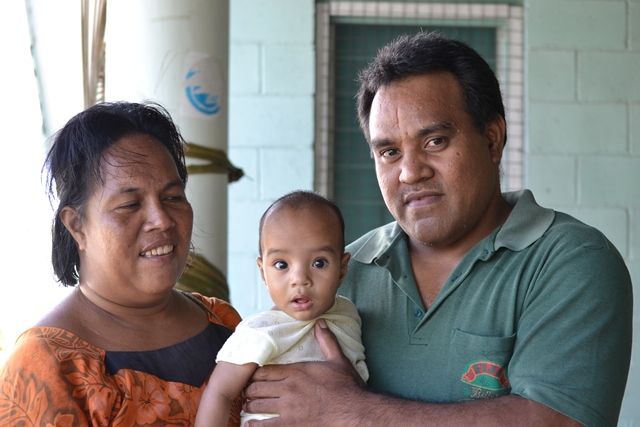Household structures are changing and so are household compositions - this is one of the key findings of a global review of how United Nations member states, as signatories to the International Conference of Population and Development (ICPD) Programme of Action (PoA), have done in implementing provisions of the PoA.
Why would changes in an arena as private as family composition, as household structures be of interest to us as individuals just trying to make it through the school system, as families trying to make ends meet, as nations trying to be an equal partner on the global stage?

Households and families are the fundamental units of societies. They are foundations upon which communities are built and as such, what happens at this basic level will naturally have a ripple effect across all levels and all sectors.
When a significant amount of girls do not complete their high school education because their parents did not plan for it for example, they more often than not become a statistic in the vicious cycle of poverty, which in itself is a package inclusive of the absence of essential services like water and electricity which leads to minimal opportunities for progress, coupled by gender dynamics that places girls and women in more vulnerable positions, both mentally and physically.
The recent review of the global implementation of the ICPD PoA which was conducted in 176 countries involved scrutiny of institutions, laws and policies; commitments made over the past five years; and asked states what their priorities were for the next five years; cross-cutting issues and underlying the review were human rights and equality.
The review findings' a clarion call for increased and consistent proactive approaches to how states are addressing population and development dynamics; it is a reminder that greater investment in health and education services for all people, in particular women, to enable full and equal participation of women in civil, cultural, economic, political and social life are essential to achieving the objectives of the PoA.
Several converging social trends such as the rise in age at marriage, rates of divorce and proportions of persons who never marry, complemented by medical innovations and ever-advancing technology, have led to increases in the number of one-person households through the world.
One-person households composed of young adults are more common in urban areas; for majority of the countries, one-person households of older persons are more common in the rural areas. In the past 40 years, there was a persistent rise across the majority of the countries from Europe to Oceania, of women between 45 to 49 years who have never married.
Globally, females are more likely than males to live in one-person households in Europe and other developed countries, it is however the opposite for countries in Africa, Latin America and the Caribbean. Men constitute the majority of persons living alone who were never married while women form the majority in the context of older persons or widows.
"These changes in household composition must be recognised and accounted for since they alter how we ensure adequate, secure housing, the wellbeing of households and children, family support, long-term care for the elderly, social protection and sustainable consumption and energy use," Dr Laurent Zessler, the UNFPA Pacific Sub-Regional Office (PSRO) director and representative said.
"Development efforts must recognise and account for the increasing diversity of households and living arrangements."
During the past several rounds of censuses, data show a general decrease in average household size in the region and this has been attributed to how households or family structures are breaking up into smaller units, often described as the transition from extended family type households to nuclear family type living arrangements due to modernisation and urbanisation of life styles.
This change of household structures is associated with an increase in the number of single and two-person households. However, the average household sizes in the region vary significantly, and it ranges from three-persons per household in Niue, to seven-persons on average in Samoa and the Marshall Islands to five in Fiji.
"Many societies and legal systems continue to be oriented to traditional male-headed family structures despite changes in household composition and living arrangements," Dr Zessler said.
"Women still have limited access to property including land ownership, leading to disproportionate poverty in households led by women, as well as being denied inheritance in many countries, and/or left to rely on relatives in the case of widowhood or divorce.
"In planning for the next few years as Pacific islands nations, we need to seriously consider how these fundamental units of societies have changed because it is a critical starting point."
These changes to household structures beg the revival of a previous discussion in this column on the Integrated Household Resource Management (IHRM) concept or how within each household, there are certain roles and contribution from members which, if carried out effectively, potentially translates to a well-managed unit. The inevitability of this apt management will presumably be progress. If this was to apply across villages and districts, the ripple effect of such changes at this fundamental societal unit should then eventually be reflected at the national level.
When a basic unit of society such as households and its dynamics are not considered during development plans, we open ourselves up to a disproportionate risk of violence, poverty and adverse health outcomes.
Household structures are changing and we must consider this seriously, in terms of our development approaches and plans, if we want healthier, progressive and socially well-managed future Pacific island communities.
National progress starts with us, at home.
*This is the first of a series of articles on the findings of the ICPD PoA Global Review.

